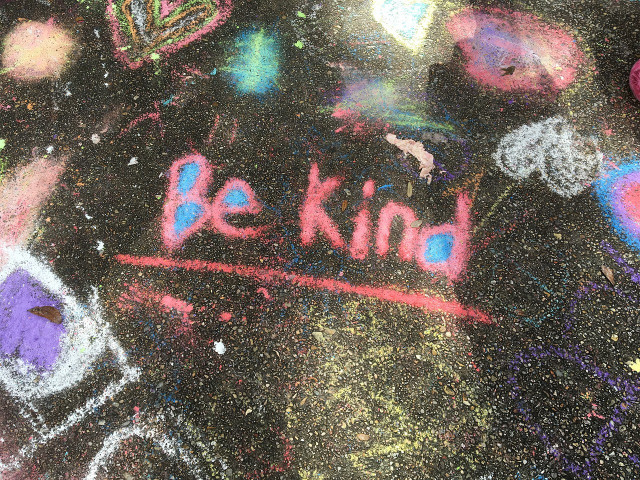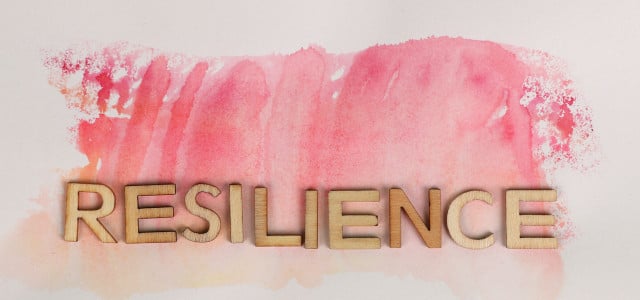Radical self-acceptance involves noticing life as it unfolds and not being upset when things don’t work out. Learn how to apply its principles here.
We live in a world that moves pretty fast. Sometimes things go our way and sometimes they veer off a little. The process of acceptance may have been particularly difficult during these last years, with world events dictating certain situations. Radical self-acceptance is a process of noticing life and accepting that it does ebb and flow. This can lead to a deeper understanding of ourselves and may help better our own judgments and well-being.
We can easily tire from worry or anxiety about where life may be, or where it is going, but there are things we can do to sit with a situation, and this is where radical self-acceptance can step in.
It’s important to be mindful of mental health, and there are many ways to practice self-care such as types of meditation and mindfulness, using affirmations or journaling. Radical self-acceptance is another tool in our healthcare toolbox. Learn how to implement radical self-acceptance into your life with these four steps.
How Might Radical Self Acceptance Help Me?

(Foto: CC0 / Pixabay / dmytro_R)
Things sometimes don’t go as we’d like, no matter how hard we try. You may have had a conflict with someone, got stuck in traffic making you late for something important to you, or maybe you knocked a drink over yourself or a friend, or their new sofa. Perhaps you aren’t happy with an aspect of your life and can’t see a way forward. Maybe someone you love has fallen ill, or you get to the one place you think will put a smile on your face, and it’s closed down. Maybe you think you’re ok but then a familiar sinking feeling takes hold.
These things happen to everyone. The world isn’t out to get you. Life can be chaotic, and irrational, and it can sometimes downright get on your nerves.
Radical self-acceptance is when you begin to take on these challenges with compassion and kindness. You don’t hold your hands up in defeat, but instead, you consider what has happened, and love yourself in spite of what your inner critic might be screaming.
Where you may start with resentment, you can rebuild, using certain techniques. It is easy to get very low when encountering misfortune, or other sadness, but what this practice does is reinforce a sense of self-care, to remind us that we are just human after all.
What Are the Key Elements of Radical Self Acceptance?



(Foto: CC0 / Pixabay / SEVENHEADS)
The practices work on many levels but the key takeaways from working with radical self-acceptance are that it can:
- Help you to recognize when you move into a negative mindset, about yourself in particular.
- Help you release that negative judgment into a place of deeper understanding.
- Help self-destructive feelings and behaviors.
- Allow and move through emotions.
- Help release feelings of guilt, or shame.
- Raise awareness of how beating yourself up can damage your well-being.
- Help you learn about unconditional self-acceptance and self-love.
- Have a knock-on effect on the relationships in your life.
- Be something you can use with loved ones, to help them too.
- Empower you, as you strengthen your ability to deal with negatives.
1. Slow Down



(Foto: CC0 / Pixabay / reneebigelow)
Slowing down can be a vital practice for self-care. When you are experiencing a negative mindset about yourself, maybe after a catalyst, or in general, slow down or stop. Grabbing a hold of the thoughts and emotions when you feel yourself start to self-judge, can give us time to acknowledge and reflect on what is happening. Take a breath. Slowing down also allows for more clarity for moving forwards.
Be honest with yourself about what happened to bring you to this mindset, and stay with the feelings for a while. Don’t ignore what you’re experiencing, but also don’t overplay them. Let them move through you. Give yourself permission to be just as you are. You are accepting, not avoiding, and things move on. If you’ve said or done something bad, this is not a case of making excuses or pretending things didn’t happen.
For example, if you hurt someone with harsh words, be aware that you did say them, and allow for any feelings connected to why you said it. We all do these things. Ignoring reasons and feelings doesn’t make them go away. Recognize. Accept.
2. Move Into Mindful Practices for Radical Self-Acceptance



(Foto: CC0 / Pixabay / morn_japan)
Knowing which practices suit you best will help with radical self-acceptance. As mentioned earlier, this may be something like meditation or mindfulness or a physical and mindful practice such as yoga (slow, yin yoga poses that you can move into would be especially helpful). Knowledge of such practices enables you to activate them fairly quickly.
Mindful practices remind us to be present, and that thoughts and emotions shift — some are fleeting, and some stay around longer, but things do pass, and thoughts and feelings do change, even about ourselves. You will likely find yourself moving into a different state of mind, one that is less critical, more accepting, and reflective.
So if, for example, you have been turned down for a promotion at work, and you are upset, perhaps wondering if you didn’t work hard enough, close your eyes and allow your mind to clear. Be present with your mind and body. Allow your breathing to deepen. Accept how you feel, and what has taken place. Maybe there are other things at play. Maybe something else will happen and life will take a new turn. Allow room for your feelings, but also space for new possibilities. You are enough. You are valid. You are human.
3. Avoid Comparison



(Foto: CC0 / Pixabay / SplitShire)
Everyone does it. We think that things are better for others, wish we were accomplishing what someone else has, and measure ourselves up to others in a way that brings us down.
Radical self-acceptance means accepting ourselves, not wishing we were like someone else. If we go through life comparing ourselves to others then in a negative way, this inevitably hits our self-esteem in negative ways. We also never know what anyone else is going through, no matter what we think it looks like.
Instead, we can reaffirm our own strengths and ambitions, and consider what steps to take, if any need to be taken. An example of this would be to use self-affirmations, to build feelings of worthiness, confidence, or something else. What might this look like? Well, maybe you are down on yourself for not doing something you’d promised yourself you might do. You can use positive affirmations such as ‘I deserve to have space and time to do things.’
If you find it hard to break the comparison loop, you can emphasize the ‘I’ voice. Going back to slowing down, and breathing deeply, you can ask yourself, ‘How do I feel,’ or ‘what would help me right now?’
4. Radical Self Acceptance is Also About Learning



(Foto: CC0 / Pixabay / Nature_Design)
We all make mistakes. We all knock ourselves, whether we feel we deserve it or not. Radical self-acceptance allows us to see what we may or may not have done, sit with it, reflect, and weave through feelings, with kindness. We learn from all these experiences, and we grow.
How could this be put into practice? Once you have given yourself space, you can have a conversation with yourself. Stay positive, and ask simple questions. There may be no immediate answers, and there may be more feelings to stay with awhile. This internal dialogue can halt destructive thoughts, as it moves you to ideas.
Dialogue with yourself may go something like this:
- ‘What was I feeling when I did that?’ (Response — that’s ok)
- ‘Do I know why I did that?’ (Response — maybe I do, I’m not sure, that’s ok…. or yes, I know why I did that)
- ‘What could I do differently if this occurs again?’ (Response likely to vary here)
Be honest but stay positive in your reflections. Don’t fall back into beating yourself up.
Radical self-acceptance can help you with the way you feel about yourself, but not only that, you can share it with others, in how it has helped you feel better. You may also notice that you are less critical of others, knowing we all get a bit down from time to time.
Read more:
- 7 Yoga Poses for Better Sleep
- 12 Self-Care Ideas for Winter
- Self Care for Moms: Why It’s Important & 11 Ideas
Important Information regarding Health-related Topics.
** Links to retailers marked with ** or underlined orange are partially partner links: If you buy here, you actively support Utopia.org, because we will receive a small part of the sales proceeds. More info.Do you like this post?









